Summer Fiction Preview from Simon & Schuster
With the support of the publisher, Shelf Awareness highlights four major Simon & Schuster novels coming in Summer 2023.
With the support of the publisher, Shelf Awareness highlights four major Simon & Schuster novels coming in Summer 2023.
The Simon & Schuster flagship imprint is excited to share a preview of its upcoming summer fiction offerings. The four novels highlighted in this issue offer something for every reader—from the landmark 10th book in the Arkady Renko series by 2019's MWA Grand Master award recipient and a caper from a hilarious writer set against the Florida Everglades, to three best friends who create a wildly successful app to get back at their exes in acclaimed YA author Carolyn Mackler's adult debut, and a stunning novel that examines race, class, and privilege through the lens of a romantic entanglement that doesn't just ask "will they"... but, "should they?"
Keep reading for an exclusive Q&A with actual Florida man Dave Barry discussing his forthcoming novel Swamp Story with Shelf Awareness's Marilyn Dahl, previews of Martin Cruz Smith's Independence Square and Carolyn Mackler's The Wife App, and an early excerpt of Cecilia Rabess's highly anticipated debut, Everything's Fine.
 |
|
| Dave Barry | |
Dave Barry is the author of Lessons from Lucy, Dave Barry's Complete Guide to Guys, Dave Barry Turns Forty, and Dave Barry Is Not Making This Up, among many other hilarious bestsellers. He is a former columnist for the Miami Herald and won the 1988 Pulitzer Prize for Commentary. Here Shelf Awareness's Marilyn Dahl speaks with Barry about his new novel, Swamp Story ($27.99, 9781982191337), which appears on May 2.
In Swamp Story, there is such a mélange of many characters, brought together for a long and hilarious finale: Two very bad brothers, the owners of a bait shop, a drug lord, a craven lawyer, a politician, a swamp denizen, a heroine and hero., and more. Not to mention gold ingots, a wild boar, a python and of course an alligator. How do you keep all these balls in the air?
That's really the fun of writing this kind of novel—inventing a bunch of weird people, putting them into bizarre situations, and then figuring out a way to get them out (or, if they're bad weird people, a way to make them pay). It takes me quite a while to figure out how a given action sequence is going to go, but once I do, it's really fun writing it.
You are so great with the "who's on first" format, establishing a rhythm that produces laughs. It doesn't take long before "Glades Guy." "Glades Man." triggers a Pavlovian response. And the birthday party! Ten pages of choking laughter. I hesitate to ask the stupid "how do you do it?", but how do you do it?
I spent decades writing humor columns, which meant I developed a lot of techniques for getting readers to laugh. These are things like joke setups, repetition, vocabulary, timing—the nuts and bolts of humor. As a humor writer, I want the novel to be funny, but as a novelist I don't want the jokes to get in the way of telling the story. I want it to feel at least sort of real, not like a sitcom; I want the readers to care about the characters. So I look for places where opportunities for humor arise organically, as logical parts of the plot, then use my humor-columnist techniques to make them funny. But I still want those sequences to advance the story. The story's the most important thing.
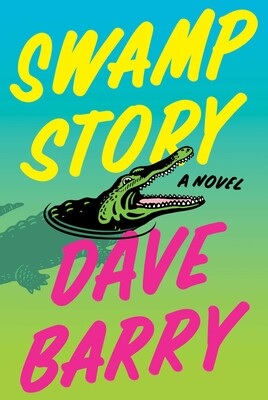 In the midst of all the laughs, there is a poignant story about Phil, an alcoholic, and his daughter. Was it difficult to get serious here? Was it important to write this?
In the midst of all the laughs, there is a poignant story about Phil, an alcoholic, and his daughter. Was it difficult to get serious here? Was it important to write this?
Phil's an important character for me. He's not me, but he is an old newspaper guy, and a dad, and I'm both of those things; also there has been alcoholism in my family, so I know what it can do. In the book, Phil represents the older generation—my generation—trying to understand and cope with a world where millions of people can't name the president of the United States but diligently follow random idiots on TikTok. So Phil's a big part of the humor in the book, but he's also a pathetic figure, and his efforts to redeem himself add—I hope—some weight to the story.
How many of the pieces of Swamp Story are real? The python infestation is true, and there must be swamp guys who live off the grid.
Many of the plot elements are real. The Python Challenge—in which the state of Florida invites the world to come down and kill snakes—is real. There may or may not be lost gold treasure out in the Everglades, but there are legends, and there are people who believe those legends. There really is a Skunk Ape Research headquarters on the Tamiami Trail. And there are definitely some sketchy individuals living out there in the swamp, keeping their distance from civilization for a variety of reasons.
The Everglades Melon Monster hoopla is summed up with "Florida. Just say Florida." You don't write a regular newspaper column now. With the current state of the state of Florida do you miss that platform?
Some days I do. Florida is a festival of weirdness—now more than ever—so it has always been a reliable source of column material. But I still get to write about it in my novels, which are all set in Florida. My good friend Carl Hiaasen says you don't need an imagination to write stories about Florida; you just need a newspaper subscription. I don't think there's anything in Swamp Story that couldn't actually happen in this insane state.
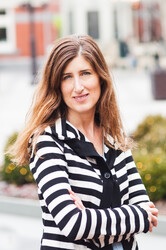 |
|
| Carolyn Mackler | |
The Wife App by Carolyn Mackler ($27.99, 9781982158798, June 27).
Because every wife deserves a happy ending.
Three best friends decide they're finally done with their ex-husbands taking their work as wives and moms for granted. They're ready to monetize the mental load, stick it to their exes, and have a wild ride in the process.
Lauren, mother of twins, wakes up one morning to her Wife Alarm Bells sounding. She sleuths on her husband's phone and stumbles on a dirty secret that explodes her marriage. Madeline has it all—a penthouse apartment, a perfect daughter, and no-strings-attached romps with handsome men. When she learns that she might lose her child to her ex in England, it stirs up a decades-old personal tragedy. Sophie, with too much FOMO and never enough money, obsesses over her ex-husband's Family 2.0—all while keeping her true desires hidden, even from herself.
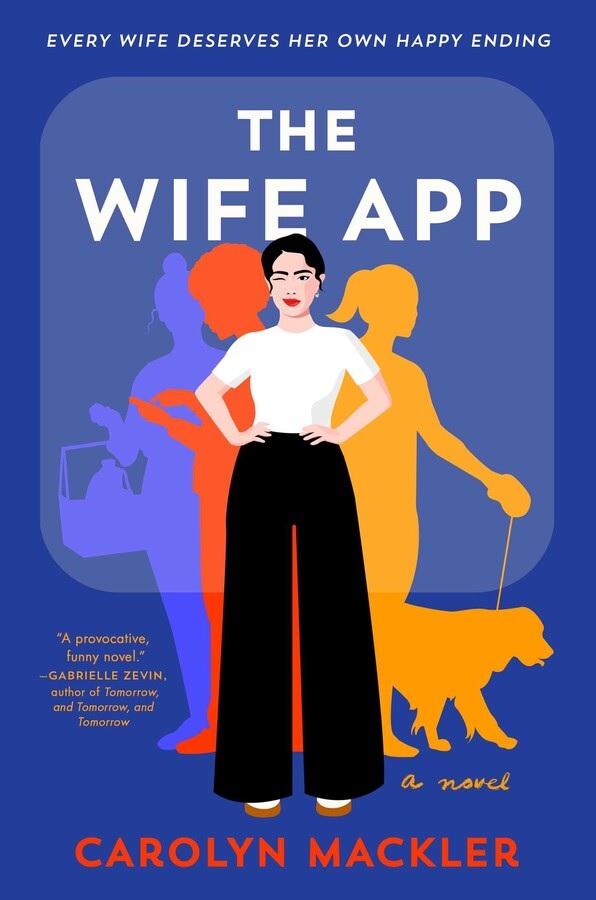 It starts as a joke during a tipsy night out, as Lauren, Madeline, and Sophie rail against everything wives do for free. Let's build an app that monetizes the mental load. And maybe get revenge on our exes in the process? Soon, the Wife App is born, and before long, it's the fastest growing start-up in New York City. But then life intervenes. Love intervenes. Ex-husbands intervene. And the consequences are bigger than anything Lauren, Madeline, or Sophie could have expected. Carolyn Mackler marks her debut into adult fiction with a hilarious rollercoaster ride of revenge and redemption that is at once a send-up of modern marriage and a celebration of female friendship and love in all forms.
It starts as a joke during a tipsy night out, as Lauren, Madeline, and Sophie rail against everything wives do for free. Let's build an app that monetizes the mental load. And maybe get revenge on our exes in the process? Soon, the Wife App is born, and before long, it's the fastest growing start-up in New York City. But then life intervenes. Love intervenes. Ex-husbands intervene. And the consequences are bigger than anything Lauren, Madeline, or Sophie could have expected. Carolyn Mackler marks her debut into adult fiction with a hilarious rollercoaster ride of revenge and redemption that is at once a send-up of modern marriage and a celebration of female friendship and love in all forms.
Carolyn Mackler is the acclaimed author of the YA novels The Earth, My Butt, and Other Big Round Things (a Michael L. Printz Honor Book); The Universe Is Expanding and So Am I; Infinite in Between; and Love and Other Four-Letter Words; as well as the middle grade novel, Best Friend Next Door. Her award-winning books have appeared on bestseller lists and been translated into more than 25 languages. Mackler lives in New York City with her husband and two sons. The Wife App is her first adult novel.
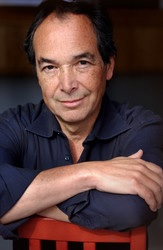 |
|
| Martin Cruz Smith | |
Independence Square: Arkady Renko in Ukraine by Martin Cruz Smith ($26.99, 9781982188306, May 9).
Detective Arkaday Renko—"one of the most compelling figures in modern fiction" (USA TODAY)—risks his life when he heads to Ukraine shortly before the Russian invasion to find an anti-Putin activist who has mysteriously disappeared.
Martin Cruz Smith has written nine previous novels featuring Arkady Renko, one of modern detective fiction's most popular characters. These novels, beginning with 1981's international sensation Gorky Park, have collectively traced Russia's evolution over the last half-century. Now, with Independence Square, Smith focuses on the fraught and frenzied days leading up to Vladimir Putin's war against Ukraine.
It's June 2021, and Arkady knows that Russia is preparing to invade and subsequently annex Ukraine as it did Crimea in 2014. He is, however, preoccupied with other grievances. His longtime lover, Tatiana Petrovna, has deserted him for her work as an investigative reporter. His corrupt boss has relegated him to a desk job. And he is having trouble with his dexterity and balance. A visit to his doctor reveals that these are symptoms for Parkinson's Disease.
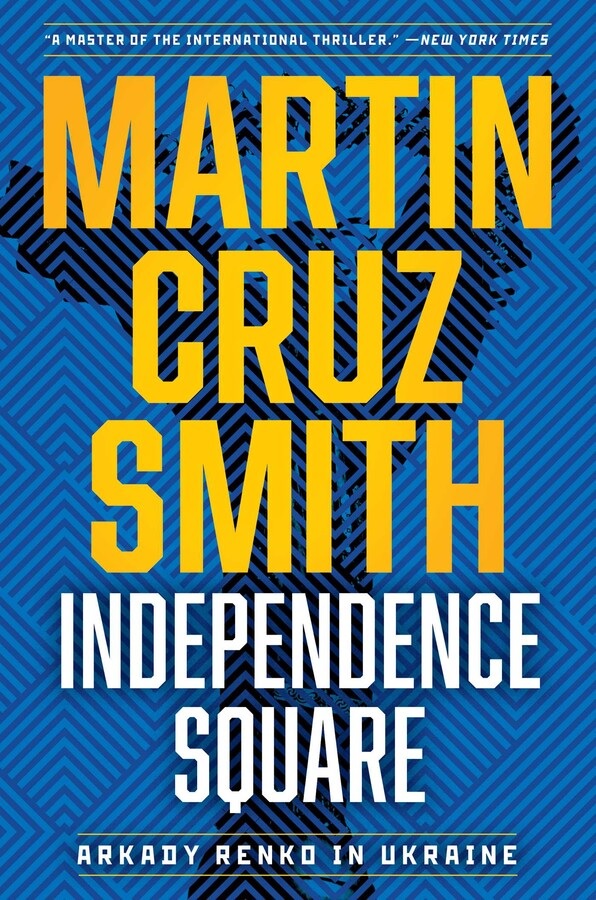 This is an ingenious autobiographical conceit, as Martin Cruz Smith has Parkinson's, and is able through Arkady to movingly describe his own experience with the disease. Parkinson's hasn't stopped Smith from his work, and neither does it stop Arkady. Rather than dwell on his diagnosis, he throws himself into another case.
This is an ingenious autobiographical conceit, as Martin Cruz Smith has Parkinson's, and is able through Arkady to movingly describe his own experience with the disease. Parkinson's hasn't stopped Smith from his work, and neither does it stop Arkady. Rather than dwell on his diagnosis, he throws himself into another case.
An acquaintance has asked him to find his daughter, Karina, an anti-Putin activist who has disappeared. In the course of the investigation, Arkady falls for Karina's roommate, Elena, a Tatar from Ukraine. The search leads them to Kyiv, where rumblings of an armed conflict grow louder. Later, in Crimea, Tatiana reemerges to complicate Arkady's new romance. And as he gets closer to locating Karina, Arkady discovers something that threatens his life as well as the lives of both Elena and Tatiana.
Few fiction writers have better captured contemporary Russia with more insight or authenticity than Martin Cruz Smith. He does the same here for Ukraine and the events that preceded Russia's invasion. Independence Square is a timely and a uniquely personal mystery novel-meets-political thriller by a master of the form.
Martin Cruz Smith's novels include Gorky Park, Stallion Gate, Nightwing, Polar Star, Stalin's Ghost, Rose, December 6, Tatiana, The Girl from Venice, and The Siberian Dilemma. He is a two-time winner of the Hammett Prize, a recipient of the Mystery Writers of America's Grand Master Award and Britain's Golden Dagger Award, and a winner of the Premio Piemonte Giallo Internazionale. He lives in California.
 |
|
| Cecilia Rabess | |
Cecilia Rabess has worked as a data scientist at Google and an associate at Goldman Sachs. Her nonfiction has appeared in McSweeney's, FiveThirtyEight, Fast Company, and FlowingData, among others. Everything's Fine ($27.99, 9781982187705), which will be published June 6, is her debut novel. The following is an excerpt from the beginning of the book:
1
Jess's first day of work, the first day of the rest of her life. Into the elevator and up to the twentieth floor, where the doors open with a little whoosh.
The entire building smells like money.
She receives a small plaque with her name printed in all caps: JESSICA JONES, INVESTMENT BANKING ANALYST. Then introductions—the other analysts on the team: Brad and John and Rich and Tom, or maybe it's Rich and Tom and Brad and John—and also Josh, who Jess remembers from college.
"Hey," she says, "it's you!"
He looks up from his desk—he is already installed at a workstation, looking busy and important—but his face is blank.
They had a class together last year and Jess remembers him, because he was the worst.
"Jess?" she offers. "From school?" He blinks.
"We had a class together?" she tries again. "Supreme Court Topics?"
He just looks at her, saying nothing. Is it possible she has something on her face?
"With Smithson? Fall semes—"
"I remember you," he says. And then promptly swivels in his chair.
Cool, Jess thinks. Nice catching up.
She starts to go.
"You know," he says, not turning, "I knew you'd been assigned to this desk."
Jess stops. "Oh, really?"
He nods—the back of his head—"I worked with these guys when I was here last summer. And I graduated off-cycle, so I've been back since January." He pauses. "They asked me about you."
"What did you say?"
"Nothing."
"What! Why didn't you tell them I was amazing?"
"Because," he says, finally turning to look at her, "I'm not convinced you are amazing."
—
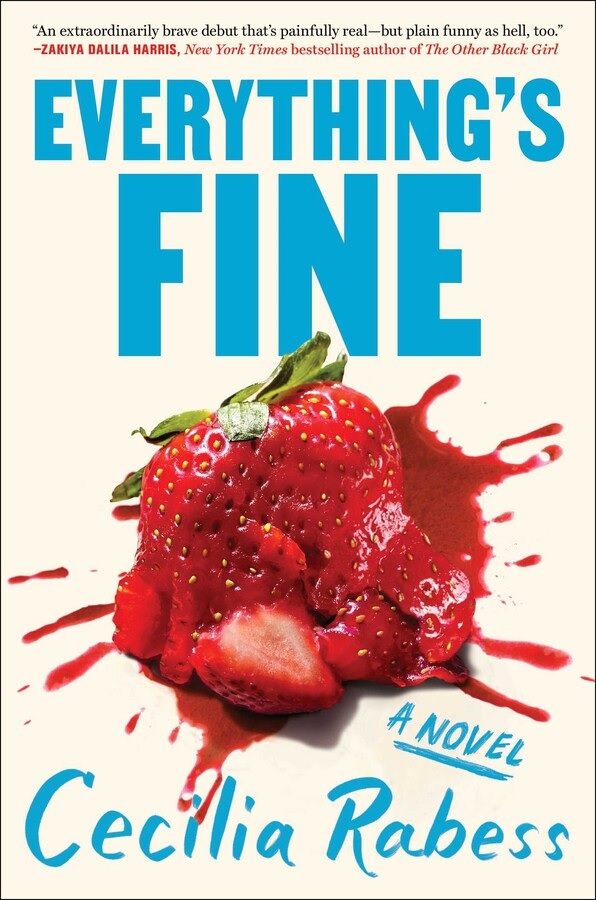 The first time Jess met Josh, it was fall of their freshman year. November. The night of the 2008 election. All day the campus had pulsated. History in the making. Around eleven the election was called and Jess emerged stunned and delirious onto the quad, which had erupted into something like a music festival. Students spilled out into the night cheering and hugging. Car horns honked. Someone screamed woot woot and, somewhere, a trombone, brimming with pathos, played a slow scale.
The first time Jess met Josh, it was fall of their freshman year. November. The night of the 2008 election. All day the campus had pulsated. History in the making. Around eleven the election was called and Jess emerged stunned and delirious onto the quad, which had erupted into something like a music festival. Students spilled out into the night cheering and hugging. Car horns honked. Someone screamed woot woot and, somewhere, a trombone, brimming with pathos, played a slow scale.
Jess had the feeling she had been shot out of a cannon; she was blinking into the moonlight when a couple of reporters from the school paper stopped her. They were compiling quotes from students on the eve of this historic moment. Did she have a minute to share her feelings, and would she mind if they took her photo? Jess said sure, even though the air was crackling and she wanted to weep.
The reporter's pencil was poised. "Whenever you're ready." What could she possibly say? There were no words.
"I'm just . . . I'm just . . . fucking ecstatic! Is this even real? And now I'm probably going to go have, like, thirty shots—no, fifty!—because that's more patriotic!"
The student reporter looked up from his mini legal pad. "End quote?"
"Wait, no! Don't write that!"
"What do you want to say?"
Jess thought about it, collected herself. Imagined her dad reading her words. Her dad, who she'd spoken to just hours ago, and whose reaction to the early returns—Ohio and Florida were set to break for Obama—was to pour himself another Coke and say: "Well, Jessie, I'll be darned."
She started over. "I feel the weight of history tonight. To cast my very first vote for our nation's very first Black president is such an awesome privilege. A privilege that my ancestors, slaves, did not share. Standing on the shoulders of so much strength and sacrifice, I've never felt more humbled or hopeful."
"That's great," the reporter said. "Now just stand over there and we'll take your shot."
Jess took a step to the left and watched as the reporter approached another student. A sandy-haired freshman wearing chinos and a collared shirt.
The photographer said to Jess, "Look this way. On the count of three."
And the reporter said to the boy in business casual, "How are you feeling about the election?"
Jess turned to the camera and smiled.
The guy in chinos turned to the reporter and said, "Everyone seems to forget that we're in the middle of a financial crisis. The stock market is in free fall. Gas is four dollars a gallon. So I'm not convinced that now is the right time to entrust another tax-and-spend liberal with the economy," he shrugged, "but I guess I can see the appeal."
Jess, aghast, turned to give him a dirty look, her smile dropping just as the flash popped.
The next day she was on the front page of the school newspaper under a headline that read STUDENTS REACT TO OBAMA'S HISTORIC WIN. The picture was good—the angle, the moonlight, her face radiating quiet wonder—and that, plus the gravitas of the moment, made Jess feel like this was something she would show to her children and their children one day.
There was only one problem.
The paper had spoken to ten students, a grid of two-by-two photos and quotes, names and graduation years printed below. But there were only two faces above the fold. There was Jess, but also the guy in the collared shirt, with his terrible quote. Jess's friends agreed that it was a stupid thing to say. Miky, who lived across the hall, said, "Who pissed in his Cheerios?" And Jess's roommate, Lydia, peered at the photo and declared: "He looks boring."
Still, Lydia tacked the paper to the outside of their door. With a marker, she drew a frame of hearts and stars around Jess's face. But there was no way to accordion the paper so that only her picture appeared. It cut off the text strangely and warped her smile. It was impossible to see Jess without seeing Josh. Eventually Miky took a Sharpie and drew devil ears and a weird mustache across his face, and that was better.
Eventually the tack hardened and the paper fluttered to the floor. At that point it was the spring semester and the hallway had devolved into a persistent, low-grade chaos: crushed pizza boxes, twisted extension cords, a mysterious pair of men's underwear. And when the cleaning crew cleared out the dormitory between the spring and summer sessions, they swept everything, including that momentous reminder, into the trash.
But until that happened, Jess could return to her room each day and see the newspaper, like a talisman, stuck to her door, emanating strength and inspiration, and when she looked at it, she would think: We are standing at the precipice of a bright new world, hopeful and resolute, knocking on the door of progress, with the conviction of what's on the other side.
And then she would slide her eyes to the right, to the photo of JOSH HILLYER '12 and his terrible quote, and she would think: Asshole!